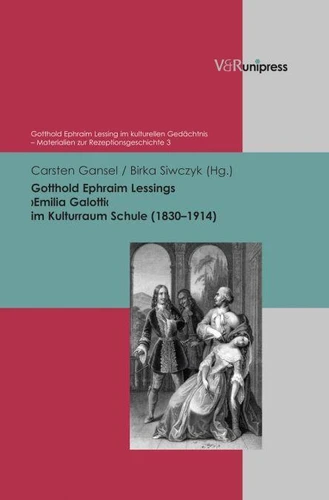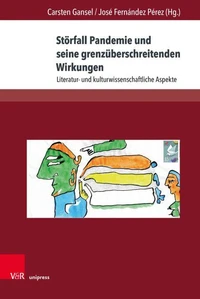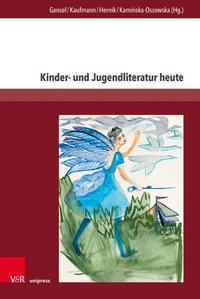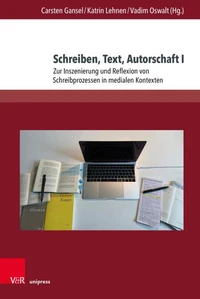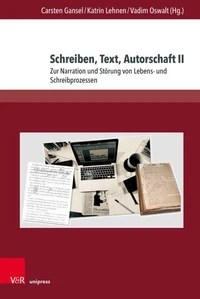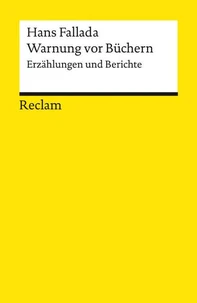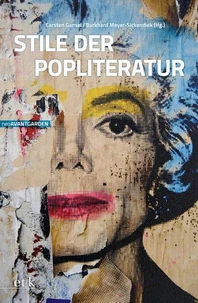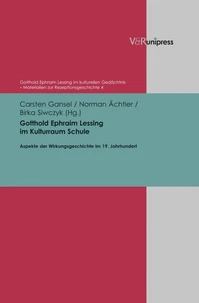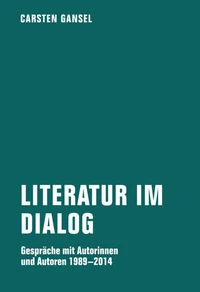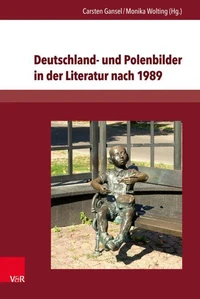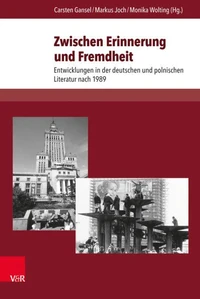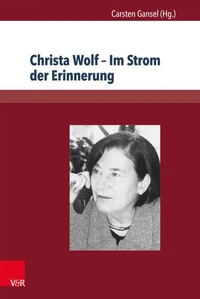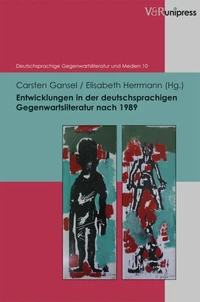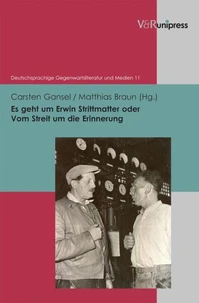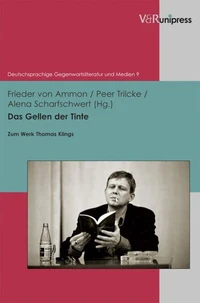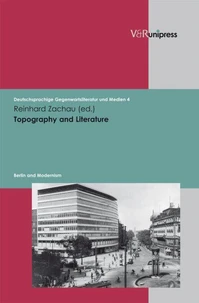Gotthold Ephraim Lessings ›Emilia Galotti‹ im Kulturraum Schule (1830–1914)
Par : ,Formats :
Disponible dans votre compte client Decitre ou Furet du Nord dès validation de votre commande. Le format PDF est :
- Compatible avec une lecture sur My Vivlio (smartphone, tablette, ordinateur)
- Compatible avec une lecture sur liseuses Vivlio
- Pour les liseuses autres que Vivlio, vous devez utiliser le logiciel Adobe Digital Edition. Non compatible avec la lecture sur les liseuses Kindle, Remarkable et Sony
 , qui est-ce ?
, qui est-ce ?Notre partenaire de plateforme de lecture numérique où vous retrouverez l'ensemble de vos ebooks gratuitement
Pour en savoir plus sur nos ebooks, consultez notre aide en ligne ici
- Nombre de pages347
- FormatPDF
- ISBN978-3-8470-0383-0
- EAN9783847003830
- Date de parution15/07/2015
- Protection num.pas de protection
- Taille4 Mo
- Infos supplémentairespdf
- ÉditeurV&R Unipress
Résumé
Gotthold Ephraim Lessing has been a special part of German cultural memory since the beginning of the 19th century. This was only possible because it was ensured that his literary estate was preserved and cared for. In Lessing's case, it was schools especially which played a salient role in the enthronement of the poet in the German canon and thus in Germany's cultural memory. The role of the classical grammar school in this process has only sporadically been documented until now.
This volume comprises edited contributions on Lessing's "Emilia Galotti". They offer an insight into the reception of this play between 1838 and 1904 and enable us to draw conclusions on relations between grammar school and university. The main focus of the volume is on school curricular programmes, which have hitherto received little attention by literary scholars.
This volume comprises edited contributions on Lessing's "Emilia Galotti". They offer an insight into the reception of this play between 1838 and 1904 and enable us to draw conclusions on relations between grammar school and university. The main focus of the volume is on school curricular programmes, which have hitherto received little attention by literary scholars.
Gotthold Ephraim Lessing has been a special part of German cultural memory since the beginning of the 19th century. This was only possible because it was ensured that his literary estate was preserved and cared for. In Lessing's case, it was schools especially which played a salient role in the enthronement of the poet in the German canon and thus in Germany's cultural memory. The role of the classical grammar school in this process has only sporadically been documented until now.
This volume comprises edited contributions on Lessing's "Emilia Galotti". They offer an insight into the reception of this play between 1838 and 1904 and enable us to draw conclusions on relations between grammar school and university. The main focus of the volume is on school curricular programmes, which have hitherto received little attention by literary scholars.
This volume comprises edited contributions on Lessing's "Emilia Galotti". They offer an insight into the reception of this play between 1838 and 1904 and enable us to draw conclusions on relations between grammar school and university. The main focus of the volume is on school curricular programmes, which have hitherto received little attention by literary scholars.

